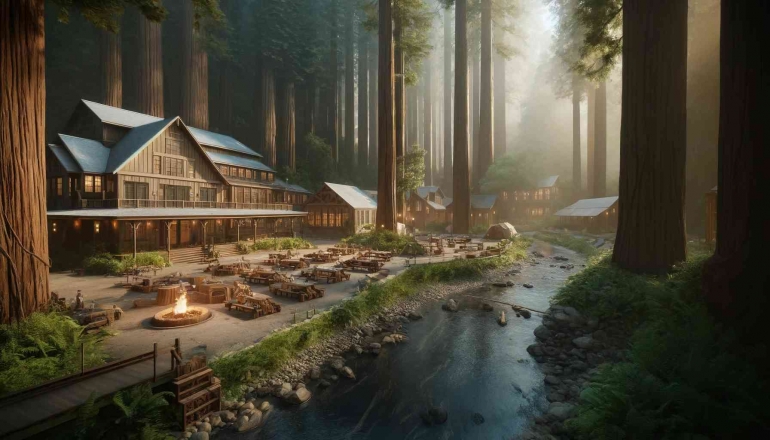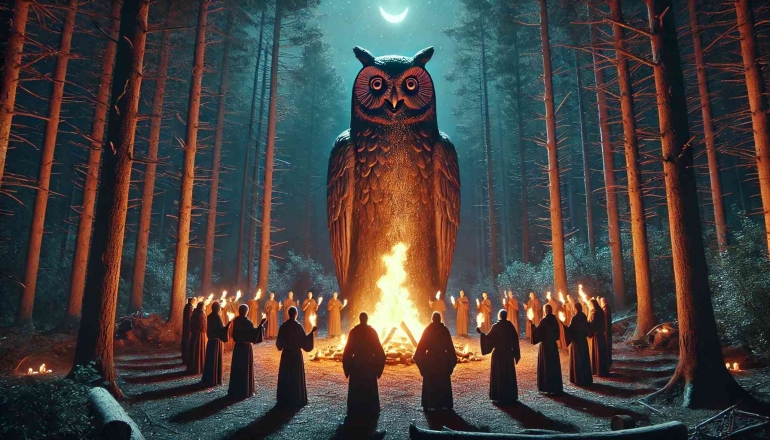In June 2013, I was in San Francisco for the Symphony Season, immersing myself in the city's cultural vibrance. One evening, during a casual dinner, a colleague who worked for a prominent humanitarian government agency mentioned an exclusive men-only annual social gathering held in Monte Rio, California. He spoke with a strange enthusiasm, insisting I would enjoy it immensely. According to him, the event attracted figures of significant influence from politics, business, and media, making it a rare opportunity to observe the nexus of power and culture.
Curious but cautious, I asked for details. He explained that the gathering was organised by a prestigious club known for its exclusivity and rich history. Originating in the late 19th century, the club had once been a haven for writers, artists, and journalists. Over time, its membership evolved to include some of the world’s most influential men. Members were known by a peculiar moniker that hinted at their shared bonds and camaraderie.
The gathering, he told me, took place in a sprawling campground nestled in a dense redwood forest. He described it as a place of serene rivers, majestic trees, and rustic yet elegant structures designed to harmonise with the natural surroundings. It sounded both idyllic and mysterious, and despite my initial hesitation, I agreed to go.

A week later, we arrived in Monte Rio. The campground was even more breathtaking than I had imagined. Towering redwoods stretched skyward, their branches forming a canopy that filtered the sunlight into soft, golden beams. A gentle river meandered through the area, its surface reflecting the lush greenery. Wooden cabins and open-air structures blended seamlessly with the environment, exuding an aura of rustic sophistication. The air was filled with birdsong and the faint rustling of leaves—a tranquillity that seemed worlds away from the city.
That evening, dinner was served in an expansive hall framed by redwoods, illuminated by soft, warm lighting. As we dined, I couldn’t help but notice the remarkable faces around me. Former U.S. presidents sat at one table, their demeanors casual yet commanding. Across the room, business magnates and media executives conversed in low, measured tones. Artists, musicians, and writers added an unexpected creative energy to the otherwise corporate atmosphere. Bill Gates was unmistakably present, his calm intensity almost magnetic. My colleague had warned me not to engage unless spoken to, and I adhered to his advice, my eyes carefully avoiding direct contact with the powerful figures around me.
Later in the evening, one of the attendees—Dick Cheney—addressed the group. His words offered insight into the gathering’s purpose. He spoke of the importance of networking, the informal yet profound exchanges that often shaped significant decisions. He highlighted how these interactions could influence policy, albeit indirectly. On the cultural front, he emphasised the gathering's traditions, which fostered a sense of shared identity among the attendees. Of particular note was the "Cremation of Care," which he described as a symbolic act of shedding the emotional and mental burdens of leadership. The explanation was compelling, yet I couldn't shake the feeling of witnessing something carefully curated and deeply intentional.

Near midnight, we were summoned to a clearing deep in the woods. At its centre stood a towering 40-foot owl statue, its imposing presence casting long shadows under the flickering firelight. The ceremony began with solemn chants and the lighting of an effigy—a figure representing "care." The burning was intended to signify the release of worries and responsibilities, a ritualistic cleansing for those who bore the weight of influence. The atmosphere was both tranquil and unsettling, the crackling fire blending with the murmurs of the gathered men. The ritual was precise, almost rehearsed, yet strangely hypnotic.
Three days later, back in San Francisco, I confronted my colleague. Half-jokingly, I asked if we had just attended an Illuminati gathering. He chuckled, shaking his head. “It’s important to separate fact from fiction,” he said. “This gathering is exclusive, yes, but it’s not the shadowy group controlling the world people imagine. That’s a myth.”









